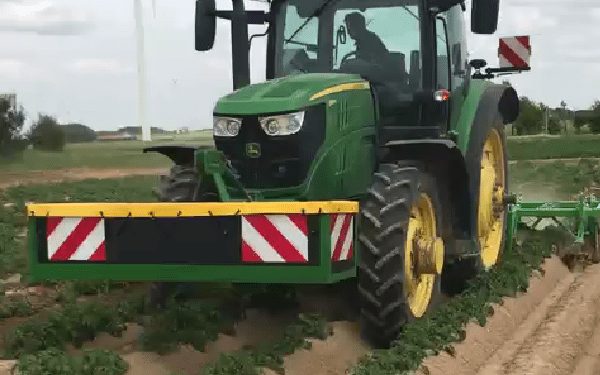Enhancing Soil Health and Crop Yield Through Sustainable Practices
In the ever-evolving landscape of potato farming, the shift towards sustainable agricultural practices has become increasingly prominent. Today, farmers and agronomists are embracing innovative approaches like mechanical weed control to optimize crop health and productivity.
Mechanical weed control involves the use of specialized machinery, such as AVR machinery’s Combi machine, to tackle weed growth without relying on chemical herbicides. This method not only addresses weed infestation but also plays a crucial role in soil management and crop development.
Recent weather extremes have caused surface soil crusts, hindering optimal potato growth. By mechanically breaking this crust, farmers enhance soil aeration and expedite soil warming, creating more favorable conditions for potato plants. This process promotes robust plant growth, fosters soil vitality, and facilitates nutrient exchange between soil and crops.
The adoption of mechanical weed control reflects a broader trend towards sustainable agriculture. Concerns over chemical herbicide residues, coupled with climatic unpredictability, have motivated farmers to explore alternative weed management strategies. This shift underscores a renewed emphasis on agronomic practices that prioritize environmental stewardship and long-term sustainability.
For stakeholders in the potato industry—from farmers and agricultural entrepreneurs to crop protection product managers, fertilizer producers, and food industry specialists—understanding and integrating these innovations is crucial. Embracing mechanical weed control not only supports sustainable farming goals but also contributes to resilient crop production systems capable of meeting future challenges.







